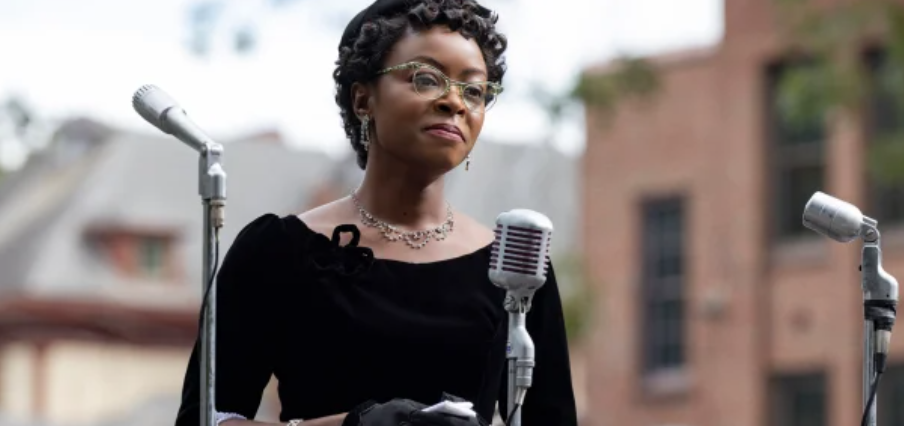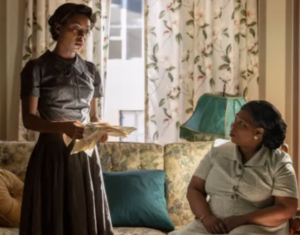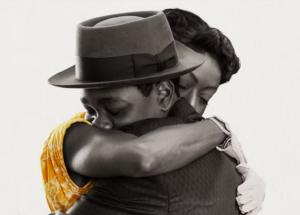Directed by Chinonye Chukwu | Written by Chukwu, Michael Reilly and Keith Beauchamp | 130 min | ▲▲▲▲△ | Amazon Prime
For those who don’t know — and, if not, why? — Emmett Till was an African American teenager living in Chicago with his mother in 1955 when she sent him to visit his extended family in Mississippi. There he was murdered by a group of white locals after he allegedly offended a white woman in a shop by complimenting and then whistling at her. It’s a story that helped push the then-nascent Civil Rights movement into the mainstream, and a lot of that had to do with the actions of Emmett’s mother, Mamie Till-Mobley (Danielle Deadwyler), following his death.
And that’s more or less what this picture is about. It serves as a biopic for Mamie and a platform for Deadwyler to give an astonishing performance, one where she wears her feelings right there on the surface — a performance that controversially was ignored at Oscar time earlier this year. The film’s also not beyond dipping into melodrama in the script to help drive home the shock and emotion of the story. To be fair, it would be a challenge to handle this material at any arm’s length.
The young Till was torn from his bed at his cousins’ home in Mississippi in the middle of the night — John Douglas Thompson does solid work as Moses, Emmett’s grand uncle — and though we don’t see the atrocities committed against him, the make-up team does a good job depicting the horrific results when the boy’s body is pulled from a river. Just as Mamie wanted to show the world his remains with an open casket funeral, allowing photographers to capture the damage done, the film wants to show the audience the result of this terrible thing and dares us to look away.
Most of the second and third acts have to do with Mamie’s gradual understanding that the Mississippi criminal case — seen by a jury made entirely up of white men — would not show the justice she and her family were seeking. She also slowly comes to realize — with the help of representatives from the NAACP — the problem in America isn’t restricted to her child, it’s about a system where the laws existing don’t support or protect African Americans.
This is strong and heartfelt stuff, and where it’s maybe a little too on the nose with occasionally soapy dialogue and big, attention-grabbing scenes, it’s still very much worth seeing. The picture also gives other actors like Jalyn Hall (as Emmitt “Bo” Till), Sean Patrick Thomas, Frankie Faison, and Whoopi Goldberg a chance to shine in a variety of smaller roles. It might not quite reach the heights of the best of films about the history of civil rights in the United States, like Selma, but it’s still a plenty affecting picture.
The thing about Till that just seems inarguable is, despite events depicted here happening almost 70 years ago, how much of this could plausibly happen today. You’d hope American justice has moved forward over the decades, but evidence (usually provided by so many cellphone cameras) suggests lots of Black people are still living under a broadly racist system.












